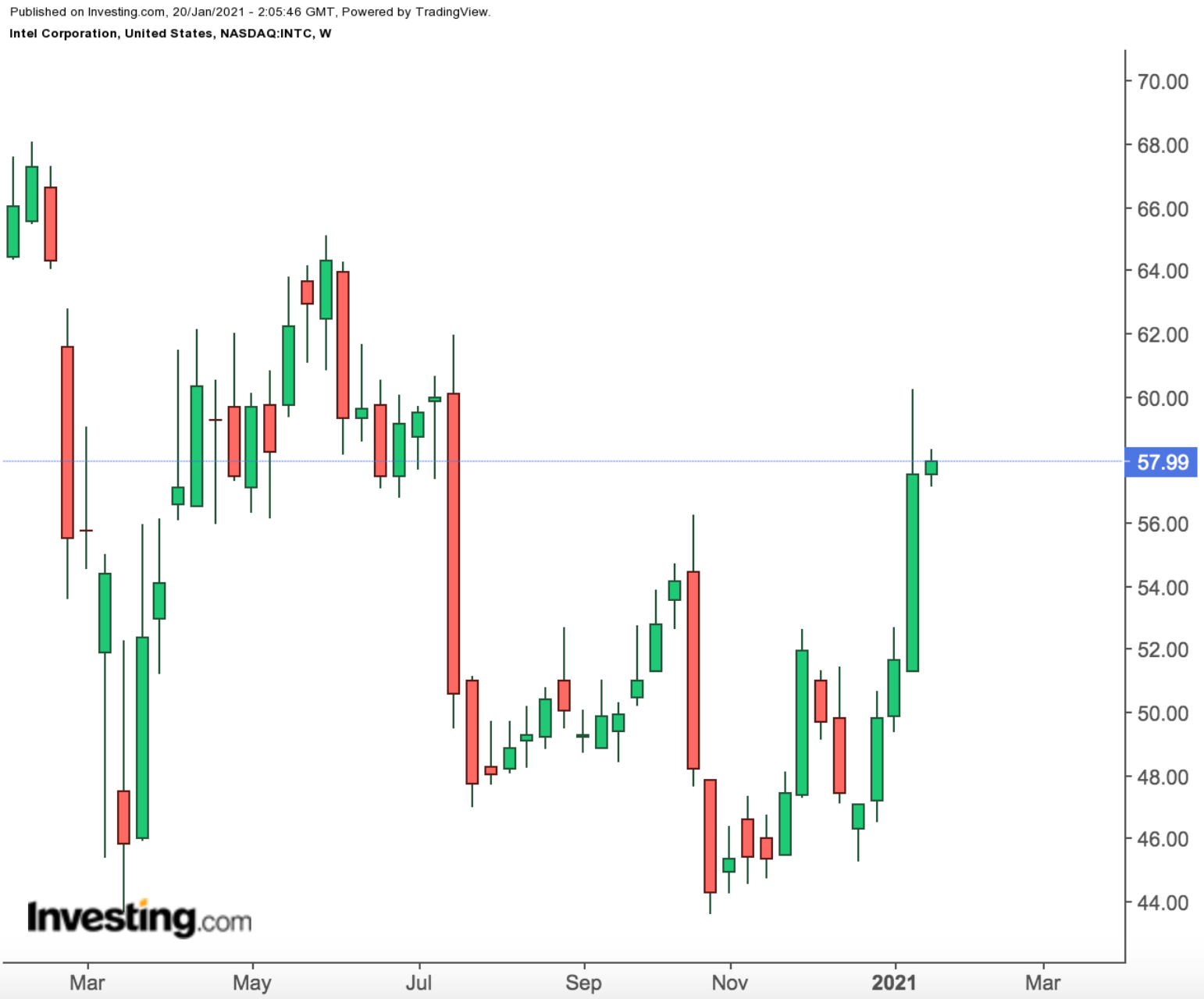- Reports Q4 2020 results on Thursday, Jan. 21, after the market close
- Revenue Expectation: $17.45 billion
- EPS Expectation: $1.1
Intel's (NASDAQ:INTC) fourth quarter earnings report tomorrow won’t be the company's standard fare. It’s being released after the chip-maker announced the appointment of a new CEO to speed up its turnaround time for newer, faster chips and amid speculation the company will follow smaller competitors and outsource its production.
Intel last week ousted chief executive Bob Swan and named Pat Gelsinger, the former chief of VMware (NYSE:VMW). The appointment is effective Feb. 15.
Gelsinger, who was once Intel’s technology chief, will run the troubled chip-maker, which last year ceded the title of America’s most valuable semiconductor company to rival NVIDIA (NASDAQ:NVDA).
This happened as Intel failed to churn out the most advanced chips ahead of rivals who have outsourced much of their production to Taiwan Semiconductor Manufacturing (NYSE:TSM). These production setbacks helped rivals to gain market share, while punishing Intel shareholders quite severly.
During the past year, when other manufacturers saw their share price skyrocket as they benefited from surging demand, Intel's stock barely budged. In fact, it fell more than 3%, while NVIDIA more than doubled in value.
After these failures, Intel is trying to reverse its course. The Santa Clara, California-based company indicated in November that it will soon update investors about its manufacturing plans, whether it intends to stick with its long-running practice of being the sole manufacturer of the chips it designs, or whether it will begin outsourcing the production of some future designs.
Six Stock Upgrades
While the semiconductor giant struggles to overcome its worst crisis in a decade, Dan Loeb of Third Point LLC, an activist investor who has built a significant position in Intel stock, is urging the company to explore strategic alternatives, including a possible breakup of the chip-maker and the sale of its assets.
The involvement of Loeb and the appointment of the new CEO have triggered a powerful rally in Intel shares during the past month, with at least six brokers upgrading the stock since then. INTC surged 21% during the period, closing yesterday at $57.99.

Morgan Stanley analyst John Moore wrote in a note last week after the announcement of Gelsinger's appointment:
“With 30 years at Intel, including in the Chief Technology Officer role, then a successful stint at VMware, he brings more relevant experience to the unique requirements of the Intel job than any other candidate.”
Moore upgraded the stock to overweight from equal weight and raised his price target to $70 from $60 in a note titled: “No quick fix, but with Gelsinger, there is light at the end of the tunnel.”
Despite this optimism, we concur: Intel has no quick fixes. Even if the company decides to outsource its chip-making business, it will still take time to catch up. In its last earnings report, Intel tried to convince investors that it had made considerable progress on its 7-nanometer manufacturing process.
But Taiwan Semiconductor Manufacturing is now already ahead in this race. It’s making more advanced chips and it plans to introduce its 3-nanometer chips in volume by the second half of 2022.
Bottom Line
Intel’s underperformance, in our view, provides an opportunity to take a long-term position in a stock that has great potential to rebound. These prospects have further brightened after the appointment of a new CEO with a strong technical background and the involvement of an activist investor. These changes could begin the turnaround process that investors are longing for.
